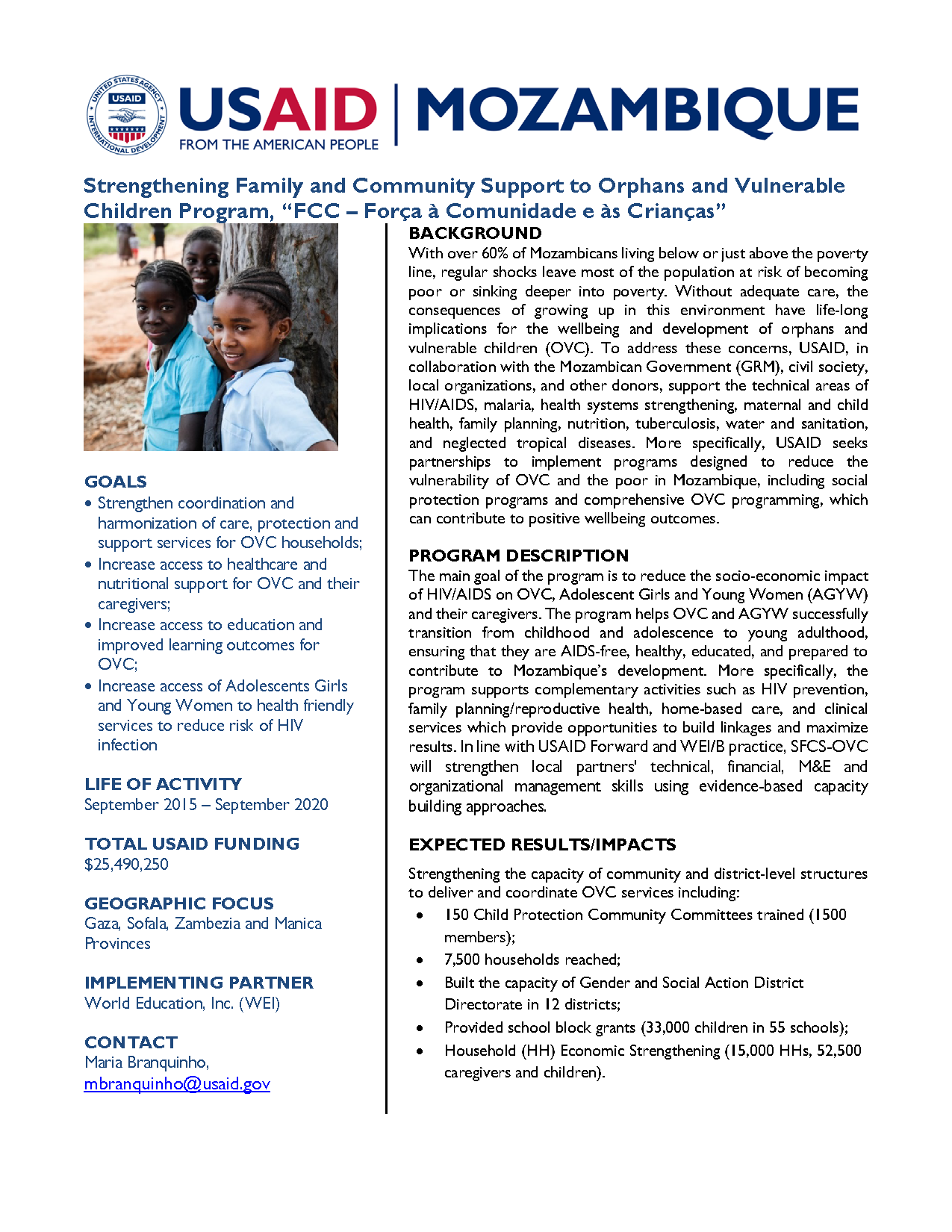Speeches Shim
![]() (166k) Strengthening Family and Community Support to Orphans and Vulnerable Children Program Fact Sheet
(166k) Strengthening Family and Community Support to Orphans and Vulnerable Children Program Fact Sheet
BACKGROUND
With over 60% of Mozambicans living below or just above the poverty line, regular shocks leave most of the population at risk of becoming poor or sinking deeper into poverty. Without adequate care, the consequences of growing up in this environment have life-long implications for the wellbeing and development of orphans and vulnerable children (OVC). To address these concerns, USAID, in collaboration with the Mozambican Government (GRM), civil society, local organizations, and other donors, support the technical areas of HIV/AIDS, malaria, health systems strengthening, maternal and child health, family planning, nutrition, tuberculosis, water and sanitation, and neglected tropical diseases. More specifically, USAID seeks partnerships to implement programs designed to reduce the vulnerability of OVC and the poor in Mozambique, including social protection programs and comprehensive OVC programming, which can contribute to positive wellbeing outcomes.
PROGRAM DESCRIPTION
The main goal of the program is to reduce the socio-economic impact of HIV/AIDS on OVC, Adolescent Girls and Young Women (AGYW) and their caregivers. The program helps OVC and AGYW successfully transition from childhood and adolescence to young adulthood, ensuring that they are AIDS-free, healthy, educated, and prepared to contribute to Mozambique’s development. More specifically, the program supports complementary activities such as HIV prevention, family planning/reproductive health, home-based care, and clinical services which provide opportunities to build linkages and maximize results. In line with USAID Forward and WEI/B practice, SFCS-OVC will strengthen local partners' technical, financial, M&E and organizational management skills using evidence-based capacity building approaches.
EXPECTED RESULTS/IMPACTS
Strengthening the capacity of community and district-level structures to deliver and coordinate OVC services including:
- 150 Child Protection Community Committees trained (1500 members);
- 7,500 households reached;
- Built the capacity of Gender and Social Action District Directorate in 12 districts;
- Provided school block grants (33,000 children in 55 schools);
- Household (HH) Economic Strengthening (15,000 HHs, 52,500 caregivers and children).


Comment
Make a general inquiry or suggest an improvement.